
MAY MIGHT English modal verbs Grammar Lesson YouTube
Fungsinya untuk mengekspresikan willingness (kemauan) atau ability (kemampuan), necessity (kebutuhan), dan possibility (kemungkinan). Modal auxiliary ini terbagi atas shall, should, will, would, can, could, may, might, must, ought, need, dare dan used, tetapi yang akan kita bahas saat ini adalah can, could, may dan might.

Diferenças Entre May E Might
Must is not an ordinary English verb. It's a Modal Auxiliary Verb, which are very irregular.. One of the strange facts about modal auxiliaries is that they always have at least two kinds of meaning. One use of modals (like must, should, or may) is called the Deontic sense, and it always deals with social permissions and obligations. All of the following are deontic, and have to do with what.
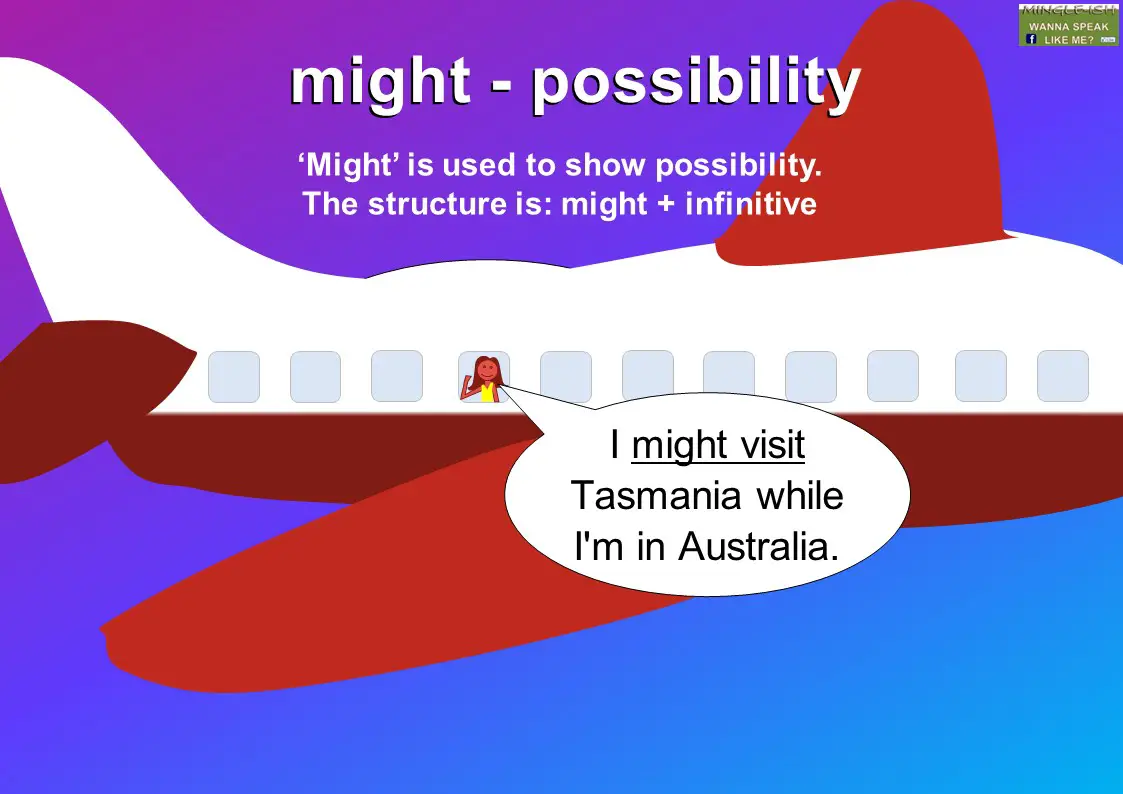
Modal verbs may & might Mingleish
May d an might adalah modal verbs yang artinya sama. Mereka dapat digunakan untuk menjelaskan dua hal: Kemungkinan (di masa lampau, sekarang, atau depan) Izin Kemungkinan di Masa Sekarang Kita dapat menggunakan baik may maupun might untuk mengekspresikan sebuah kemungkinan atau membuat sebuah perkiraan. Contohnya, Tom might win this game.

MAY vs MIGHT How to Use Might vs May in Sentences? Confused Words English language learning
from English Grammar Today Might: forms Affirmative (+) form Might comes first in the verb phrase (after the subject and before another verb): She might sell her house. This might be true. Not: That might can be true. or That can might be true. Negative (−) form The negative form of might is might not or mightn't.

Modal Verbs Might English Grammar Notes, English Verbs, English Language, English Study
Grammar modal verbs The modal verbs are can, could, may, might, must, ought to, shall, should, will, and would. Dare, need, have to , and used to also share some of the features of modal verbs. Modal verbs have only one form.
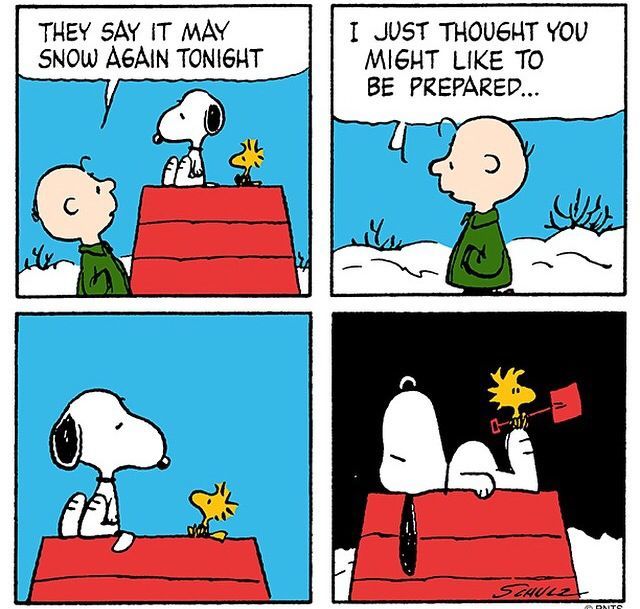
How to use the modal verb might?
Might yang sering kita gunakan dalam suatu kalimat, tidak serta merta berarti "boleh" saja. Namun, kata Might yang merupakan salah satu jenis Modal Auxiliary verb ini masih mempunyai makna lain, tentunya menyesuaikan dengan kalimat (sentence) atau ungkapan (phrase). Mari kawan kita mengulik lebih dalam mengenai jenis Modal Auxiliary verb ini.

Might + verb gì? Cấu trúc, cách sử dụng modal verd might
Might carries with it less probability and applies to hypothetical and counterfactual situations. Might is also the past tense of may. May applies to situations that are possible or could be possible. When talking about something that is not happening, it can be better to use might to avoid confusion with the permissive may.
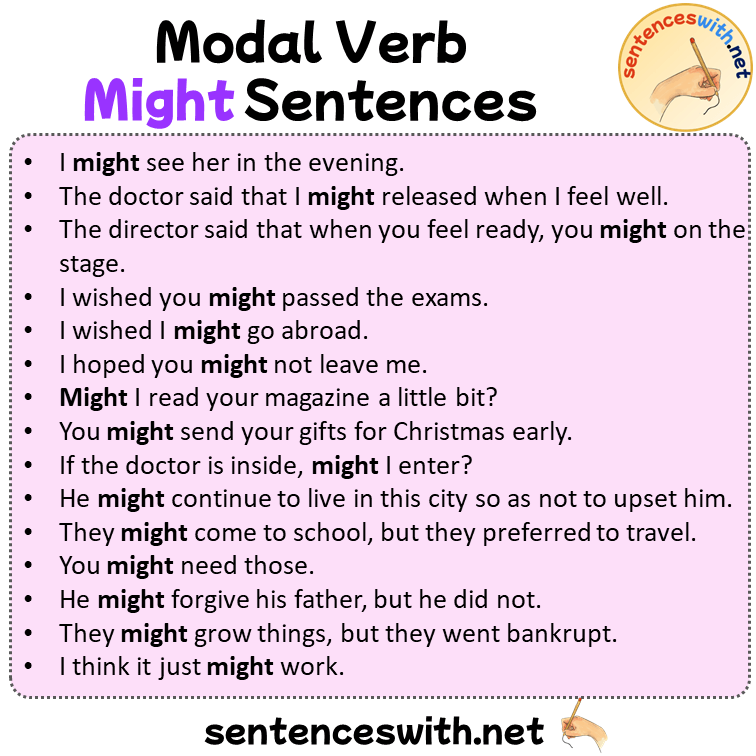
Modal Verbs Might Sentences, 100 Examples of Might Sentences
Highlight a lack of alternatives. Make a suggestion. Pose brainstorming questions. Indicate frustrations. Form conditionals. Using the English modal verb 'might' correctly can add layers of meaning to your sentence. Plus, it indicates an advanced level of knowledge and ability in your English grammar. In this Confident English lesson, you.

Modal Verbs MAY and MIGHT Materials For Learning English
might: [noun] the power, authority, or resources wielded (as by an individual or group). bodily strength. the power, energy, or intensity of which one is capable.

Kegunaan Might Modal Verb Lengkap Dengan Fungsi Dan Contoh Kalimat My XXX Hot Girl
The modal verbs are can, could, may, might, must, ought to, shall, should, will and would. Dare , need , have to and used to also share some of the features of modal verbs. Modal verbs have only one form.

Modal Verbs Probability May Might and Could ESL Lesson Plan Lesson Plan
I mean "might" has the highest possibility. In first case He/She is at present time. So answer with the highest possibility at that time. Second case is at different tense which is simple past. "Might" past form of "may". You can use just like this; "might + have + (Verb 3)". Share.
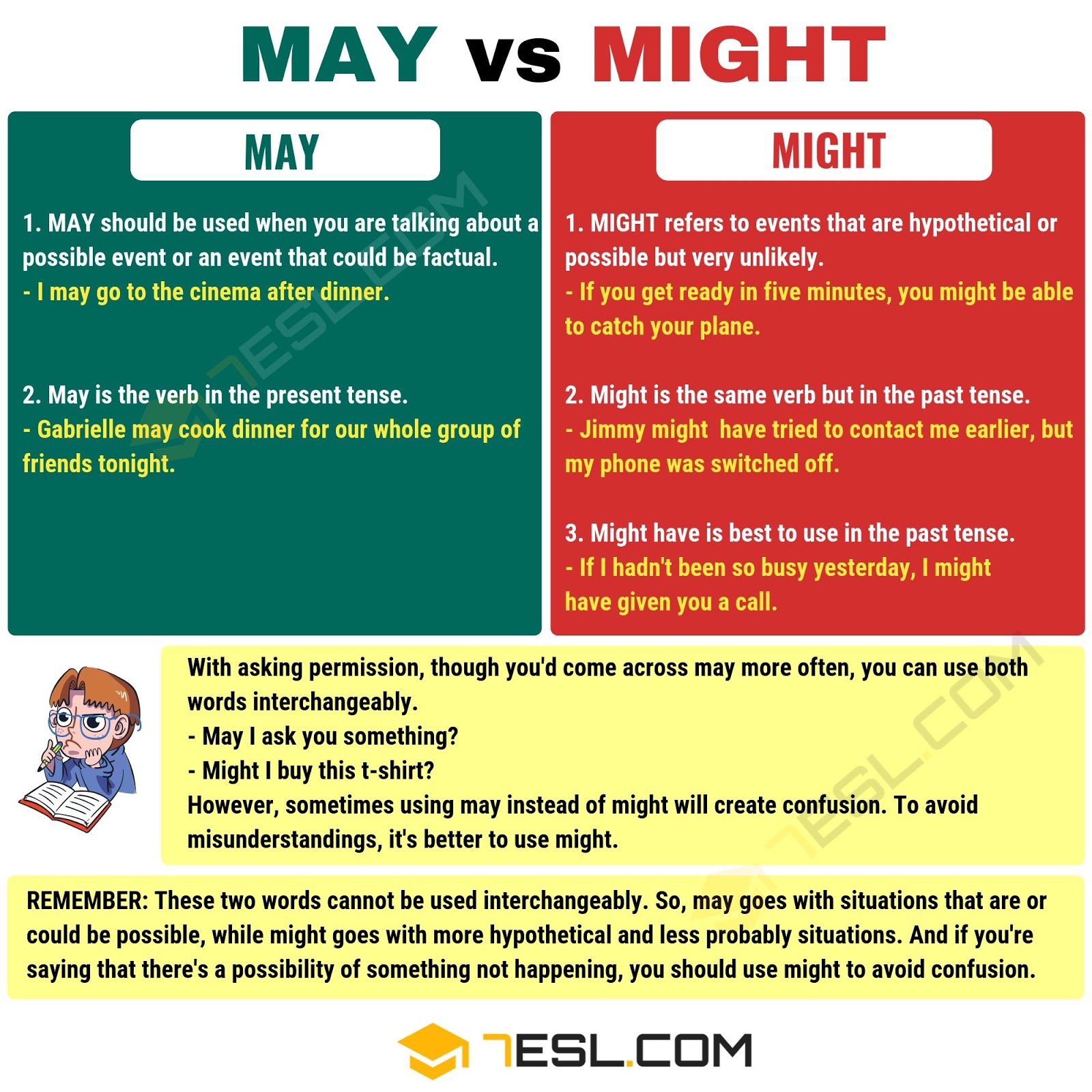
Click on MODAL VERB MAY/MIGHT
When expressing probability, "might" is often used instead of "will.". This is because "might" suggests a lower probability than "will.". For example, "It might rain tomorrow" suggests that there is a chance of rain, but it is not certain. On the other hand, "It will rain tomorrow" suggests that rain is a certainty. 4.

May and Might Modal verbs in English YouTube
Might. f t g+ p. "Might" is a modal verb most commonly used to express possibility. It is also often used in conditional sentences. English speakers can also use "might" to make suggestions or requests, although this is less common in American English. Examples: Your purse might be in the living room. possibility.
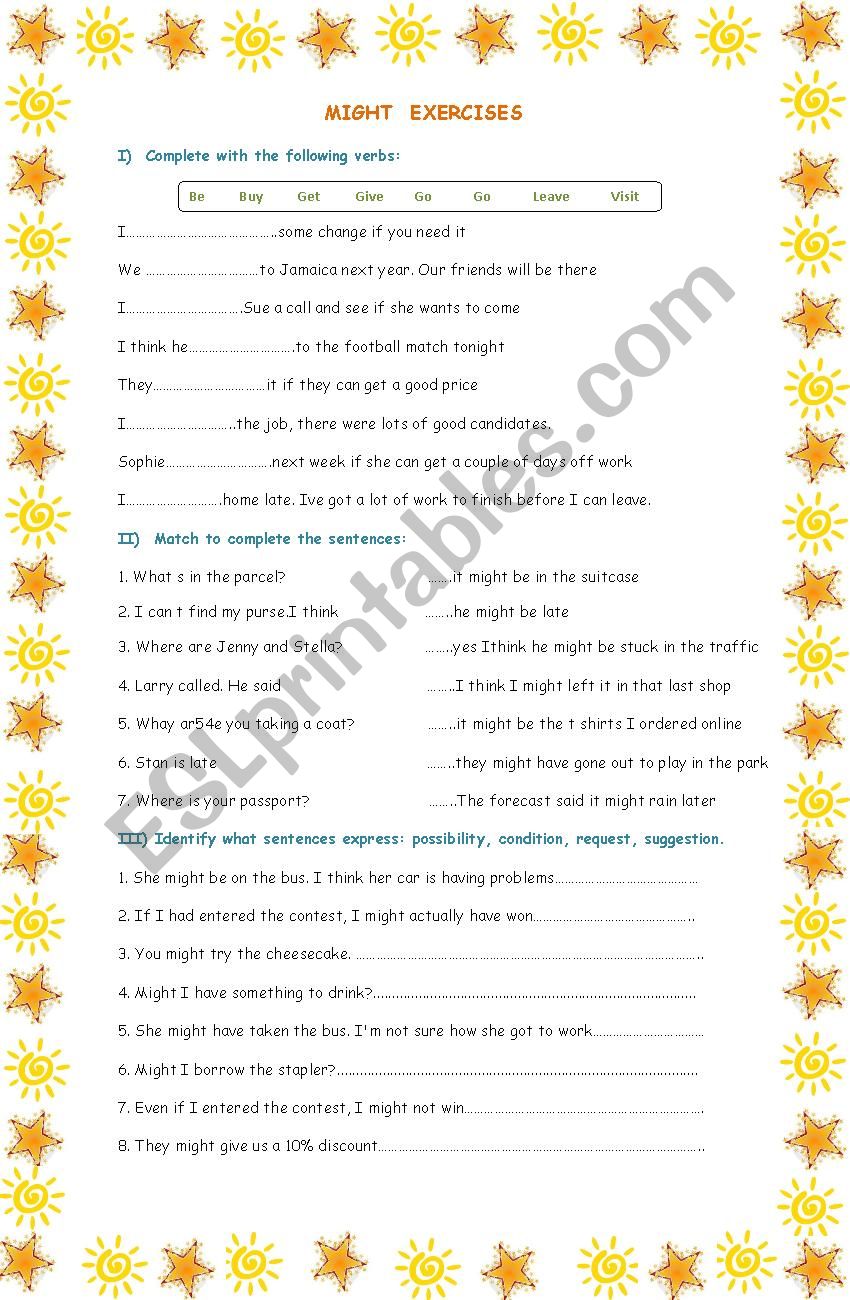
MODAL VERB MIGHT ESL worksheet by dicx777
They might. The same happens with MAY.. I may, you may, he may, she may, it may, we may, they may. Just like the other modal verbs, there is never an S at the end of may or might: She mights stay. (This is NOT CORRECT) She might stay. (This is CORRECT) After MIGHT or MAY we have the verb, or more specifically, the base form of the infinitive.

Might + verb gì? Cấu trúc, cách sử dụng modal verd might
Present and future. May and might + infinitive are used to express present or future possibility.May expresses a greater degree of certainty:. You should ask him. He may/might know Susan's telephone number. (Perhaps he knows her number.) I may/might see you later. (Perhaps I will see you later.) You should introduce yourself; he may/might not remember you..

Modal Verbs Might Como aprender ingles basico, Temas de ingles, Verbos ingles
(Possible, but not very common) The structure may / might + perfect infinitive can also be used to refer to the present or future. In this case, may and might show possibility. Compare: By the end of this month, I may have finished this work. (Strong possibility) By the end of this month, I might have finished this work. (Weak possibility)